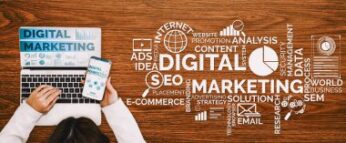At TotalWeb Partners, we understand that navigating the digital landscape can be overwhelming. Businesses today face increasing competition, evolving algorithms, and shifting consumer behaviors. That’s why our Web Marketing Services are designed to provide a comprehensive, results-driven approach to help you achieve online success.
Why Web Marketing Matters
A strong online presence is no longer optional—it’s a necessity. Whether you’re a small business or a large enterprise, your digital footprint dictates how potential customers find and engage with your brand. With our expert solutions, we ensure that your website is not just another link on the search results page but a powerful tool for lead generation, customer engagement, and brand awareness.
Customized Website Design & Development
Your website is the cornerstone of your online presence. We specialize in creating visually appealing, functional, and high-performing websites tailored to your industry and business goals. Whether you need a standard business website, an e-commerce platform, or a dynamic catalog site, our team builds with user experience and conversion optimization in mind.
Search Engine Optimization (SEO): Getting You Found Online
What good is a website if no one can find it? Our SEO services ensure that your site ranks prominently on search engines like Google. We implement national and regional SEO strategies, keyword research, content optimization, and technical SEO improvements to drive organic traffic and increase visibility.
AdWords & Paid Advertising Management
If you’re looking for instant results, our Google Ads, LSA (Local Services Ads), and social media advertising solutions can help you reach your target audience effectively. We develop customized ad campaigns that align with your business goals, ensuring optimal ROI and lead generation.
Social Media Management & Community Engagement
A strong social media presence is crucial in today’s marketing world. We don’t just post content—we build communities. From Facebook and Instagram to LinkedIn and Twitter, our experts create and manage campaigns that engage your audience, boost brand credibility, and drive conversions.
Email Marketing & Lead Nurturing
Email marketing remains one of the highest ROI-generating strategies. We design, execute, and track personalized email campaigns that nurture leads, retain customers, and drive sales. Our approach ensures that your audience receives relevant, valuable content that encourages action.
Take the Next Step Toward Online Success
At TotalWeb Partners, we don’t just offer marketing services—we create tailored solutions that drive real results. Whether you need a website overhaul, SEO strategy, paid advertising, or social media management, we’re here to help.
Ready to elevate your business? Explore our Web Marketing Services today and let’s build a powerful online presence together.









